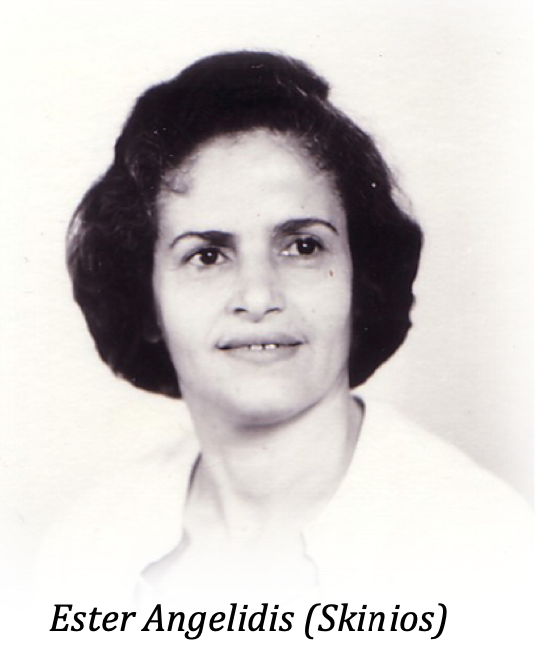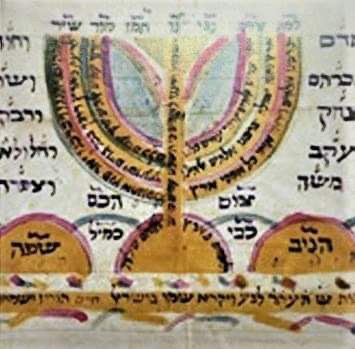This is my story about the deportation of Ioannina, Greece 1944
My beloved children, this is my story about how the Germans caught and deported us from the city of Ioannina in Greece on the 25th of
March, 1944.

This day they had released the doctor Eriko Levi, who had been imprisoned by the Germans. It was morning and I leaned out the window to see the airplanes that flew over us at very low altitude. I saw Eriko coming to the house. I also saw the schoolyard where the SS/Gestapo had surrounded the Greek police and later on they had even surrounded the whole neighborhood. During this time we had inherent Germans from the Air Force and they wanted to help us. But we did not fully understand each other because we could very little German. Therefore even we were captured and the Germans gathered us at the river Arachthos in Ioannina. There, the Germans forced us up on trucks and drove us to the city of Larissa. In Larissa, we climbed off the trucks and they gathered us in a courtyard belonging to a regiment where they forced us to stand in line. A German soldier group armed with rifles said we should give them all the gold we had or they would kill us. But we had no gold, only some had. In the regiment in Larissa the Germans tormented us tremendously, and a lot of people were set to dig their own grave. Several were also executed on the road to Larissa.
From Larissa the Germans transported us in train cars to the concentration camp in Birkenau. I do not remember how long we traveled to the camp. When we arrived in Poland the Germans closed the gates to the concentration camps so no one from the public could see what was going on inside the walls.
They began to unload us from the train cars. Those who were destined for “ovens” (Esther’s own words for crematories) they loaded on to the trucks. Those who were destined to the camps had to go on foot. Once inside we were placed in a shower room completely naked. The Germans let us be naked all night and the next day, they demanded our personal information for registration. We moved to another area in the camp where we were tattooed with a number on our arms. Afterwards many of us burst into tears and regret. We were fed with an old soup that we had to eat whether we wanted or not.
We began to be sent out from the camps for slave work. We walked several kilometers on foot and in the evening when we came back from work, the Germans chose the weak and took them to the “ovens”. We hid from this from time to time. Several times when we came back from work outside the camp, they stripped us from our clothes to see if we were hiding any weapons. The Germans humiliated us over and over again and several nights they forced us to go out of the barracks where they kept us to check if we had weapons hidden. Several tried to resist but they were caught and executed. They were placed in front of the gates as we passed by to show us what happens if we resisted.
I can honestly say that I never expected to get out of here alive. Nonetheless, I survived.
When the war was near the end, we who had remained were relocated from Birkenau to Bergen Belsen, where we had to carry firewood which the Germans had sawed. Firewood that they used to work the “ovens” with. We had been moved to one of the worst concentration camps in the history. We said to each other that now the end was near. But even this time I survived.
We were moved again. This time we had to walk for a week on routes through Poland. People came out on the road and wanted to give us food but the Germans did not let them. And not only that, those who could not cope to walk, were executed. On top of this we had bombers flying over us dropping their bombs everywhere.
Finally we reached “Berlinka” and we were placed, 500 girls, in a cramped room. We could not perform our needs, there was no water, nothing. We went to the kitchen to find potato skins to eat something, we were so hungry. From this camp we were freed by the British. In the end, many died of starvation. Many also died of diarrhea when they ate too much and to fast after being malnourished. We came to a hospital for recovery. We were here for a month and then we had to sit in quarantine. Afterwards several returned to their home countries. I had my papers finished at the last minute and asked to come to Sweden and that’s why I am here today.
I came to Sweden 6th of July in 1945 by boat to Helsingborg and now I have been here for over 50 years. I was 23 years old when the Germans took me from Ioannina and now I am 75 years old. In Helsingborg a lot of people had gathered to welcome us but we were ashamed because we were dirty and starved. The Red Cross took care of us and we were let to have a bath. We got a powder on us to get rid of the fleas. From here we went on to Malmo. Those who were sick had to stay in hospital and the other had to sit in quarantine. I had typhus fever and remained in the hospital. I was pretty sick and weighed only 35 kg.
When I came to Sweden I often cried very much. I was all alone and I knew nobody. And what made me incredibly sad was that I had been separated from my parents in the concentration camp. My mom, my dad, my sister, my brother.
My sister and her husband, they had two children, a 3 year old and a baby who was 8-9 months. My mother’s sister, they were four people. My mother’s brother, they were 7 people.
My mother had a sister who lived in Crete and they were three people. I had several cousins in Athens, in the United States, whose last name I do not know. What happened to them I do not know.
In Sweden, I met my husband who took care of and supported me. After we met, we got engaged in 1946 and in 1950, we were married. Slowly, slowly we came in order. We had three girls and life was pleasantly different after all I went through in the concentration camps. Our girls grew up and created their own families with children and grandchildren. Unfortunately my husband did not get to meet his first grandchild due to that he was hit by a car 19th of December, in 1969. From 1969 I became a widow with my three girls. Therefore, I have been through a lot in my life.
This is my story, please remember it.
Esther Angelidis, Gothenburg, 1997
(composed and translated by Theo Papaioannou, grandchild)
Source of the text and the photo: Kehila Kedosh Janina https://www.kkjsm.org/articles-and-historical-archives
